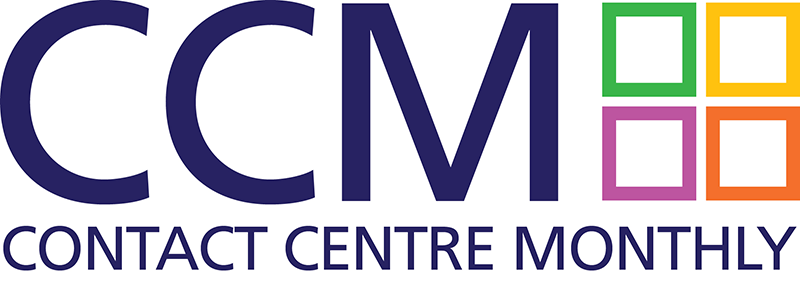As your online sales and operations grow, so to do the number of critical decisions you will need to make. To enable smoother operations and facilitate growth, business process outsourcing (BPO) can help. Online retailers can adopt one of three approaches – insourcing, outsourcing or a hybrid setup of the two.
eCommerce retailers face the decision to either invest large sums of capital in expanding their fulfilment warehouses, developing their delivery technology and technical infrastructure or grow their in-house customer service teams. Alternatively, retailers are increasingly outsourcing business processes, helping them focus on their core competencies such as new product development, protecting their intellectual property, marketing and sales.
This article covers the latest contact centre trends, the different types of customer service outsourcing solutions available and a guide to know when the right time is to outsource or whether outsourcing is the right option for your business.
What are the latest eCommerce customer service outsourcing trends?
Outsourcing customer service is on the rise, with almost 54% of all companies using third-party support teams to connect with customers. In a recent study by Parcelhub, part of the Whistl Group, 100 e-retailers were asked about their investment plans for the coming twelve months, with outsourcing delivery-related customer service one of the top 5 areas.
What are the different types of outsourced eCommerce customer service?
Retailers face a variety of customer service challenges. Thankfully there is a wide range of BPO solutions to help:
- Inbound call handling – allows you to focus on your business and provides your customers with managed service excellence for all inbound phone calls.
- Out-of-hours and overflow support – for peak periods, overflow of calls from your in-house team or the handling of marketing campaign-related calls.
- Outbound campaign support – Your contact centre specialist will work with you to develop a brief and service level agreement. The brief can include campaign objectives, expected timelines and return on investment targets, helping you capitalise on outbound accounts handling opportunities.
- Multi-channel or Omni-channel support via live chat, email, social media, phone calls and mobile messaging – helping you give your customers a consistent, on-brand experience across all sales and contact channels. Ideal for businesses using a customer experience management platform such as Freshdesk.
- Bureau call centre services – An ideal call centre solution for brands or retailers who experience low, infrequent, or seasonal contact volumes
- Customer data handling – With the introduction of GDPR, organisations must stay on top of their customers’ data and communication preferences. This type of service may include inbound call handling, surveys, CRM cleansing, data auditing and even customer exit interviews to identify gaps in service quality.
- Complaint management – A dedicated expert team of agents manage and resolve queries with your business’s exact tone and style, including the required empathy to alleviate and address your customers’ concerns.
- Product query support – Typically an in-sourced business function, a BPO would work alongside your product and sales teams to gain knowledge of your product range and access your product information, ready to help customers with their queries. Access to your order management system will give the BPO the required data to determine whether an item or product variant is in stock.
- Loyalty program management – With the goal of the increasing customer lifetime value of your most prized customers, an outsourced contact centre can undertake outbound and receive inbound calls to engage with your business’s biggest fans.
- Product return management – Helping customers process their returns with access to your eCommerce order management system.
- Online reputation management – The BPO is tasked with monitoring your Trustpilot (or other) review platform, ready to respond, raise a ticket with another department and identify trends that could be underlying causes for the negative or positive feedback.
- Delivery query support for your customers’ ‘Where is my order?’ queries (WISMOs) – When a delivery issue occurs, the dedicated resource is on-hand to help customers identify the reason for their delivery’s delay.
How do you know when it’s the right time to outsource your customer service?
The maturity of your business – Deciding whether to outsource contact centre services may depend on your business age and growth phase. Do you need to build a customer service team from scratch? Or do you need some extra resources to complement your existing employees?
- Knowledge or skills gaps – Is there a knowledge or expertise gap in your customer service team? You may be able to recruit and develop someone in-house. Still, suppose your requirement for this expertise is urgent, and the demand for these skills is seasonal; you may benefit from outsourcing or insourcing and rotating these recruits around other areas of your customer service team.
- Your current customer feedback – By researching your current and future ideal target customers, you will be able to build a picture of where your customer service isn’t meeting the market’s expectations. Based on your findings, you will be able to create a business case for either developing your internal resource or outsourcing with a specialist.
- Your business’s over-arching strategy, growth aspirations, current and ideal future customers – In any business, there is unrealised value. Whether this value lies within your current customers or prospective requires testing, research and analysis. Your priority might be to serve existing customers better, drive loyalty or develop an authentic omnichannel customer experience – in which case better support with your contact channels, delivery queries, loyalty program, and product returns would be ideal. Or your business goal could be to increase customer acquisition in new markets – in this case; an experienced outbound, campaign-focused contact centre specialist would be more appropriate.
Seasonality of demand – depending on your product type, your sales volumes may peak and trough at different times of the year. To capitalise on sales opportunities, you may need to outsource inbound, out-of-hours and multi-channel customer service support.
Deciding to insource or outsource
Outsourcing customer service can help your business to extend your usual opening hours and increase flexibility and scale. Outsourcing means saving on fixed employment and staff training costs while reducing your IT and infrastructure costs by taking advantage of a BPO’s systems. Managing customer service in-house provides the opportunity for control but can become capital-intensive and time-intensive. At the Whistl Group, we pride ourselves on offering contact centre support to some of the UK’s leading retailers and brands. Get in touch to find out more.


